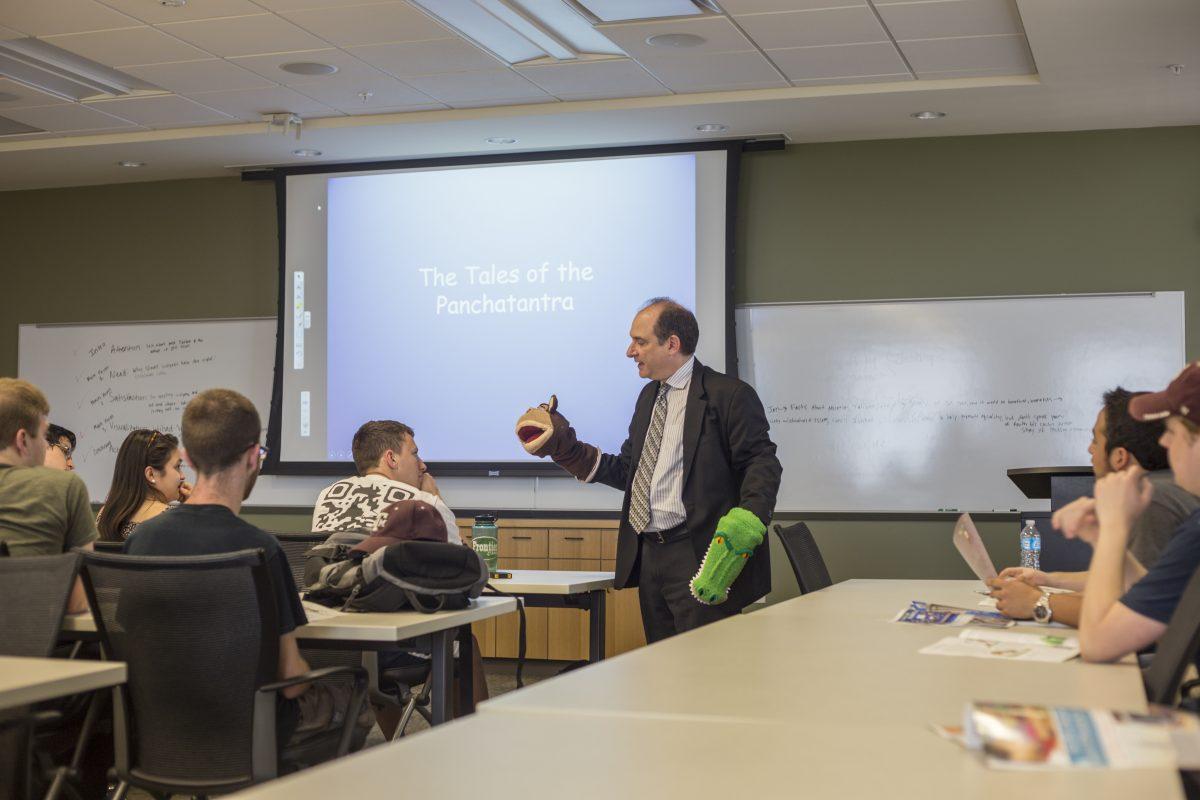A group of visiting students and faculty is mixing a new medium into the learning process — puppets.
Puppetry in Practice, an organization based out of Brooklyn College since 1980, is seeking to create a satellite organization in the Bryan-College Station area. Wayne Reed — assistant professor of childhood, bilingual and special education — and Michael Perreca — a theatre specialist, professor and voice actor — visited campus Wednesday from Brooklyn College to provide information on integrating the arts in upcoming programs.
“To have a mini PIP in Texas was a new thing, and they were very excited about it,” said Jennifer Wollock, director of undergraduate studies and professor in the Department of English at Texas A&M.
The members of PIP hope these programs will help transform the commonplace acronym STEM into STEAM, to incorporate interactive arts.
To them, puppetry is more than public performance. Perreca said the medium also has learning benefits for children.
“It turns out that the puppet, if you’re an English language learner, is a better English speaker than the puppeteer,” Perreca said.
Perreca said this is because the child’s focus is not on their own effort to learn the language, but instead on the puppet.
Programs like PIP could help educators teach children in the classroom through other mediums, making them more effective for students of different cultures. Reed said this is especially important in a diverse urban setting.
“I am always in the process of thinking about how I prepare a classroom practitioner to be more effective in performing in a classroom setting in an urban environment like New York City,” Reed said. “With a million children representing 175 language groups, not including dialects, you can imagine that preparing yourself to become a teacher, to go into a classroom, that can help.”
Reed said incorporating children from other cultures, especially those still learning the language, is important in reducing stress levels in the classroom.
“How are you going to create a way for that child to enter into the discourse, and how are you going to create a space in which they are comfortable and relaxed enough to take in what’s going on around them? And that’s where I think what Michael’s doing and what Puppetry in Practice is doing is an amazing innovation because you are reducing the level of anxiety,” Reed said.
Wollock said the program is open to students of all disciplines. Elizabeth Peltier, English junior, attended Wednesday’s presentation and said she could see its potential.
“I feel like it would help a lot of people who are going to be teachers and educators reach groups of students that they wouldn’t have been able to before just because of language barriers,” Peltier said. “And like they said, working with special [education] students and just that stigma.”
Reed said members of PIP hope the project will be integrated by education majors in the classroom setting, and there are plans for courses on this material in the works at A&M.
“When you introduce a puppet, you introduce acting, you introduce music, you’re introducing things that children from anywhere can connect to and can be a part of,” Reed said.










